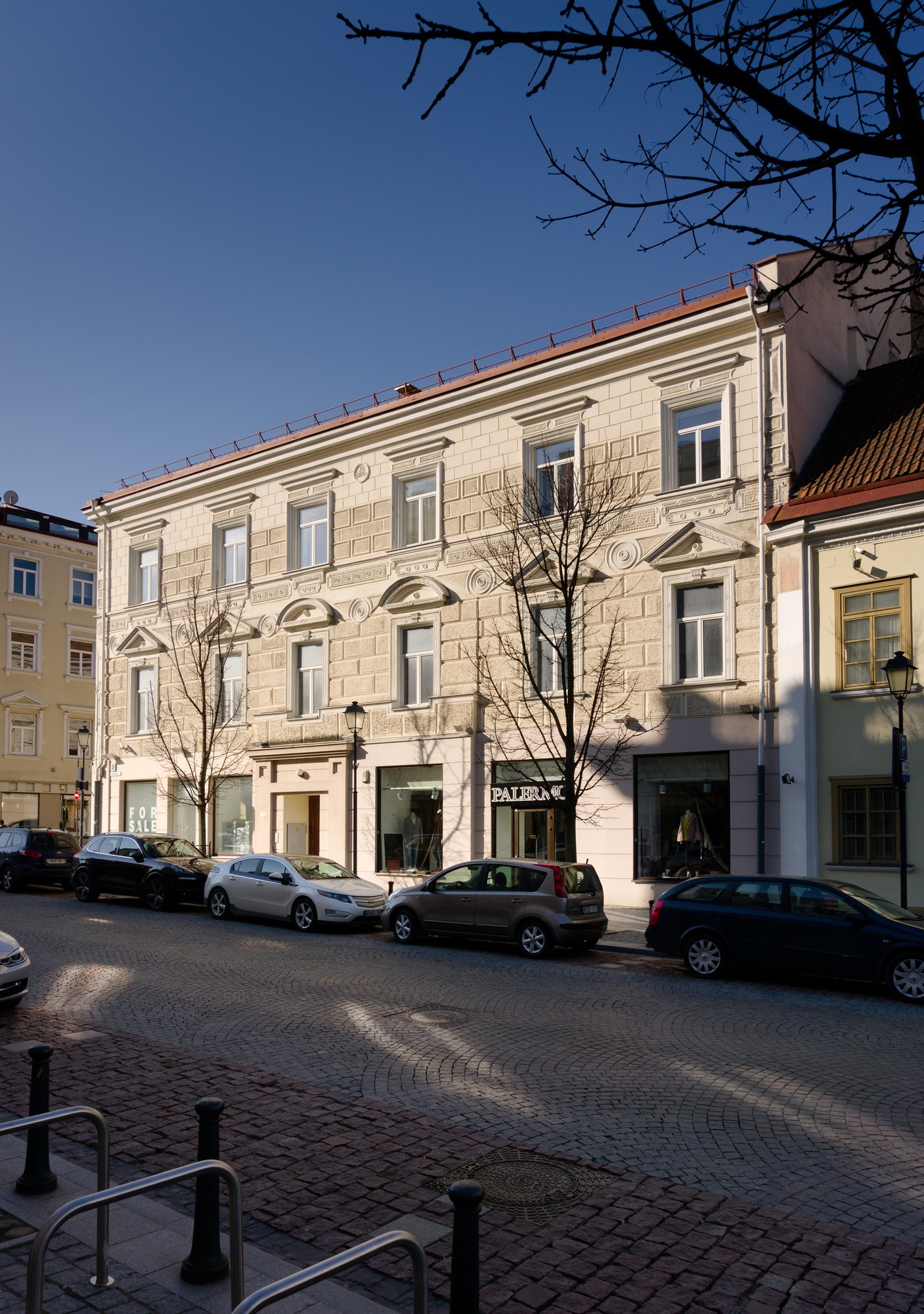
39 Didžioji Street. 2019
Photographer Tomas Kapočius
Lithuanian Art Museum
A house stood here in the early 1600’s belonged to a Vilnius merchant, member of Magistrate, Petras Procevičius. His heirs were unable to keep it up and the house in a critical state was given to monastic communities in the late 1600’s. In the middle of the 18th century , the house belonged to merchants Lakhowiczes. It was part of a continuous row of buildings up until the middle of the 18th century. The present-day Etmonų street was formed in 1767, when duke Ignotas Oginskis purchased the burned down house on Didžioji street and demolished it together with another house on Arklių street to pave a road leading to his palace. In the 19th century, the house was owned by different people. Its premises were rented out to various stores. In 1938 it became the location of 1777-founded drugstore Gulbės Vaistinė (Swan’s Drugstore), partly owned by ancestors of a famous Polish singer Maryla Rodowycz. One of the longest running drugstores in Vilnius, it operated until the early 2000’s. In the Soviet period, the premises were nationalised and became a footwear workshop of the Vilnius Model House. After Restitution of Independence, the building was renovated and converted into a hotel.
MARIE TRINTIGNANT (1962–2003)
French actress. At the age of four, started acting in films by her mother, Nadine Trintignant. Starred in over 60 films, also worked in theatre. Five-time nominee for the César Award, the national film award in France. While working on a TV series Colette (dir. Nadine Trintignant) in Vilnius, in July 2003, Marie Trintignant stayed in the hotel on 39 Didžioji st. In the night of July 26–27, she was severely beaten by her boyfriend, lead singer of Noir Désir, Bertrand Cantat. The actress died from brain injury on August 1. She has become a symbol for the struggle on violence against women.